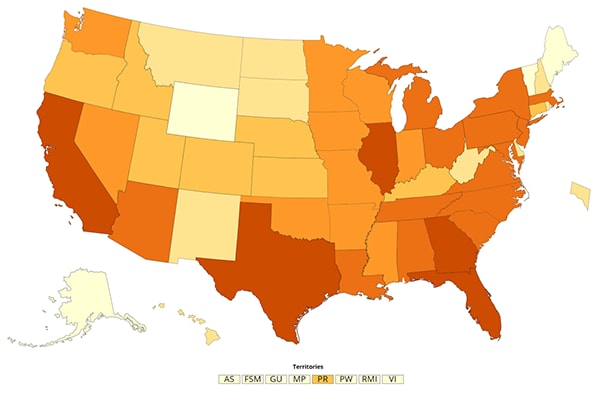Received this email from a friend? Sign up now |
|---|
August 17, 2020 This message includes updates on the COVID-19 response from CDC. The COVID-19 Outbreak is a rapidly evolving situation and information will be updated as it becomes available. |
|---|
Duration of Isolation and Precautions for Adults with COVID-19 |
|---|
Interim Guidance for Rapid Antigen Testing for SARS-CoV-2Note: Antigen tests can be used in a variety of testing strategies to respond to the COVID-19 pandemic. This interim guidance is intended for clinicians who order antigen tests, receive antigen test results, and/or perform point-of-care testing, as well as for laboratory professionals who perform antigen testing in a laboratory setting or at the point of care and report those results. |
|---|
Coping with StressThe COVID-19 pandemic may be stressful for people. Fear and anxiety about a new disease and what could happen can be overwhelming and cause strong emotions in adults and children. Public health actions, such as social distancing, can make people feel isolated and lonely and can increase stress and anxiety. However, these actions are necessary to reduce the spread of COVID-19. |
|---|
Hand HygieneHand hygiene is an important part of the U.S. response to the international emergence of COVID-19. Practicing hand hygiene, which includes the use of alcohol-based hand rub (ABHR) or handwashing, is a simple yet effective way to prevent the spread of pathogens and infections in healthcare settings. |
|---|
Guidance for General Laboratory Safety Practices during the COVID-19 Pandemic |
|---|
Coronavirus Disease 2019 (COVID-19) in the U.S. |
|---|
As of August 17, 2020 In the United States, there have been 5,382,125 confirmed cases of COVID-19 detected through U.S. public health surveillance systems in 50 states and the District of Columbia, Puerto Rico, Guam, the Northern Marianas Islands, and U.S. Virgin Islands. CDC provides updated U.S. case information online daily. |
|---|
|
|---|

